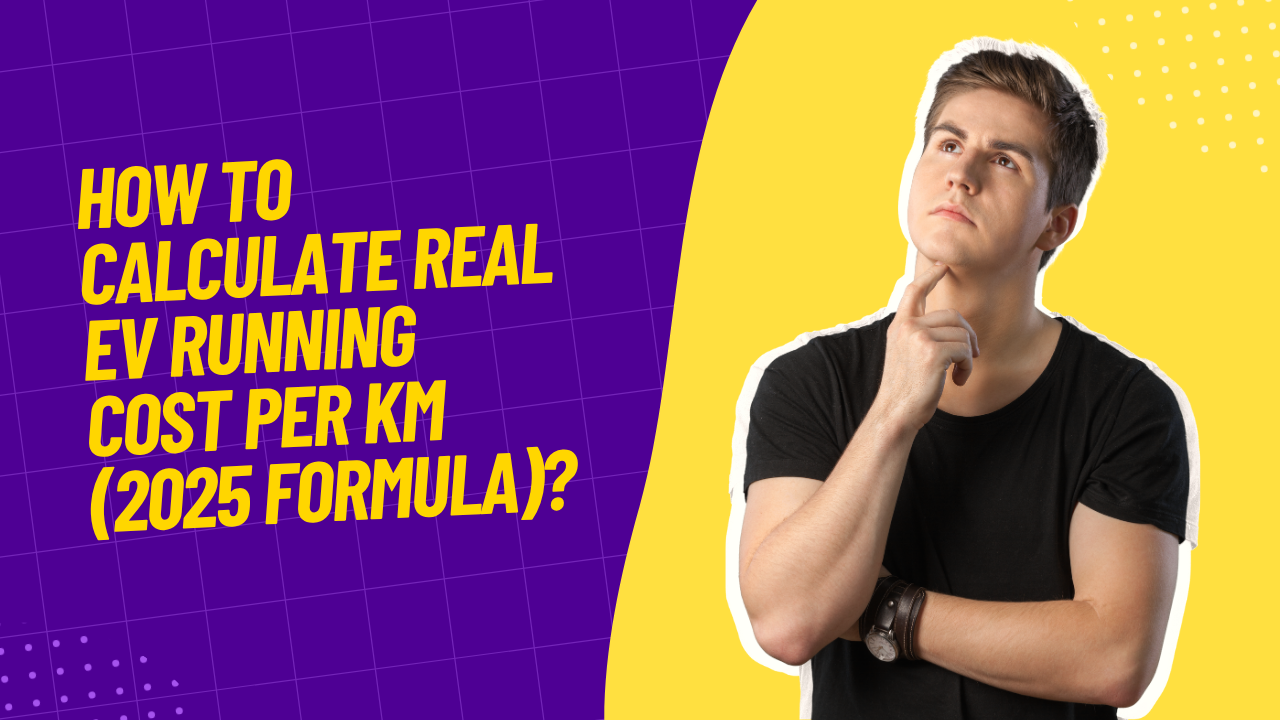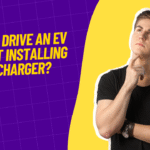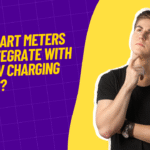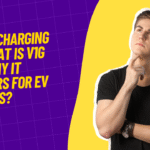As more Indian consumers shift towards electric vehicles (EVs), one of the most common questions asked is: “How much does it really cost to run an EV per kilometre in 2025?”
While advertisements often boast figures like ₹1/km or even lower, these numbers rarely reflect the true cost when you factor in real-world charging patterns, battery efficiency, maintenance, electricity tariffs, and even infrastructure expenses. In this post, we’ll break down a realistic, data-backed formula to calculate the EV running cost per km in India for 2025 — giving you transparency before you buy your next EV.
Why It’s Important to Know Real EV Running Costs?
Understanding the true cost per km of an EV can help:
- Evaluate if switching to electric is financially viable
- Compare EVs vs petrol/diesel vehicles over time
- Identify the most cost-effective EV model for your needs
- Prepare for long-term expenses like battery replacement or charging setup
Let’s dive into how to calculate the real numbers — with 2025 electricity rates, real-world EV performance, and maintenance costs.
The 2025 Formula for Real EV Running Cost per KM
To calculate the real EV running cost per kilometre in India (2025), we need to consider these key cost components:
1. Battery Consumption Rate (kWh/km)
This is how much electricity the vehicle consumes per km. Most EVs in India consume between 0.12 to 0.25 kWh per km, depending on the size, weight, and driving pattern.
2. Electricity Cost per Unit (₹/kWh)
The cost of electricity varies across states and even based on residential vs commercial charging. In 2025, average EV charging cost in India is ₹7 – ₹10/kWh.
3. Charging Efficiency Loss (10%–15%)
Charging is never 100% efficient. Around 10%–15% of electricity is lost during AC charging (less in fast DC charging). This must be factored in.
4. Maintenance Cost per KM
EVs have fewer moving parts, but not zero maintenance. On average, ₹0.15 – ₹0.30/km is spent on maintenance including tyres, brakes, servicing, etc.
5. Battery Degradation Cost (Long-Term)
Over time, the battery will degrade and eventually need replacement. We amortize the battery replacement cost over its lifetime per km.
✅ 2025 EV Running Cost Formula:
Total EV Cost per km = [(kWh/km) × Electricity Rate × (1 + Charging Loss %)] + Maintenance/km + Battery Degradation/km
Example 1: Small EV like Tata Tiago.ev (City Driving)
| Parameter | Value |
|---|---|
| Battery Consumption | 0.13 kWh/km |
| Electricity Rate (residential) | ₹8/kWh |
| Charging Loss | 10% |
| Maintenance | ₹0.20/km |
| Battery Replacement (₹5L, 1L km life) | ₹0.50/km |
Cost = (0.13 × 8 × 1.10) + 0.20 + 0.50 = ₹1.64/km
🟩 Real Cost per km: ₹1.64
Example 2: Mid-size EV like Tata Nexon EV or MG ZS EV
| Parameter | Value |
|---|---|
| Battery Consumption | 0.17 kWh/km |
| Electricity Rate | ₹8.5/kWh |
| Charging Loss | 12% |
| Maintenance | ₹0.25/km |
| Battery Degradation | ₹0.60/km |
Cost = (0.17 × 8.5 × 1.12) + 0.25 + 0.60 = ₹2.42/km
🟨 Real Cost per km: ₹2.42
Example 3: Fast Charging on Commercial Network
When you charge on DC fast chargers or public charging stations, the electricity rate may go up to ₹14/kWh or more.
Let’s take the same EV with 0.17 kWh/km:
Cost = (0.17 × 14 × 1.05) + 0.25 + 0.60 = ₹3.74/km
🟥 Real Cost per km (public charging): ₹3.74/km
Comparison with Petrol Cars (2025)
| Fuel Type | Avg Mileage | Fuel Rate (₹/L) | Cost per KM |
|---|---|---|---|
| Petrol Car | 15 km/l | ₹110/litre | ₹7.33/km |
| Diesel Car | 18 km/l | ₹95/litre | ₹5.28/km |
| CNG Car | 22 km/kg | ₹82/kg | ₹3.72/km |
| EV (home) | N/A | N/A | ₹1.64 – ₹2.42/km |
| EV (DC) | N/A | N/A | ₹3.5 – ₹4/km |
✅ Even with fast charging, EVs are still cheaper to run than petrol or diesel vehicles — and far cleaner.
Hidden EV Costs to Consider
- Home Charger Installation – ₹15,000–₹50,000
- Peak Hour Tariff – Some states charge more during peak load times
- Road Tax Waiver – Savings that make total cost of ownership lower
- Insurance Costs – EV insurance is rising as more models hit the market
- Public Charger Waiting Time – Time is money, especially in crowded cities
How to Minimize EV Running Costs in India?
- Use home charging with solar panels, if possible
- Avoid frequent fast charging
- Drive at optimal speed (40–60 kmph) to maximize range
- Regularly rotate tyres & service brakes
- Monitor battery health via app or onboard diagnostics
- Apply for state subsidies & charging cashback offers
2025 Electricity Rate Trends for EVs
Some states have special EV tariffs:
| State | Avg Rate for EV Charging (₹/kWh) |
|---|---|
| Delhi | ₹5.5 – ₹7 |
| Maharashtra | ₹6 – ₹9 |
| Tamil Nadu | ₹6.5 – ₹8.5 |
| Karnataka | ₹7.5 – ₹9.5 |
| Gujarat | ₹6 – ₹7.5 |
| Kerala | ₹6.5 – ₹9 |
As EV penetration increases, charging at home or during off-peak hours will remain the most economical way to keep your running cost low.
Conclusion
The real EV running cost per km in India (2025) varies from ₹1.5 to ₹4/km depending on the vehicle type, usage pattern, and charging method. While upfront costs of EVs are higher, the long-term savings in fuel, maintenance, and government subsidies make them an attractive option for daily commuters and fleet operators.
Before buying an EV, use the 2025 formula provided above to calculate your personalized running cost per km, and see how much you can save compared to petrol or diesel.
FAQs: Real EV Running Cost per KM
Q1. What is the cheapest EV to run in India in 2025?
Small EVs like the Tata Tiago.ev or MG Comet EV, when charged at home, can cost under ₹1.8/km to run.
Q2. Does fast charging increase EV running cost?
Yes. Fast DC chargers often charge higher per kWh (₹12–₹15) and also cause faster battery wear, increasing long-term running costs.
Q3. Is EV maintenance cost really low?
Compared to ICE vehicles, yes. EVs have fewer moving parts. However, tyres, brakes, AC, suspension, and software updates still cost money.
Q4. Do EVs save more money over 5 years?
Definitely. Over 5 years, most EVs save ₹1.5 – ₹2 lakh on fuel and maintenance when compared with petrol cars of similar size.
Q5. What affects battery degradation cost?
Driving style, temperature, charging frequency, and battery quality. Degradation adds ₹0.5 – ₹1/km to your EV cost if you plan to keep it long-term.
Q6. How can I track my real EV cost per km?
Use EV monitoring apps like Tata Connect, Ather App, or PlugShare, or maintain an Excel log of energy units used and kilometers driven.
Q7. Does using solar power help reduce EV running cost?
Absolutely. Charging your EV using rooftop solar can bring your effective running cost down to ₹0.50/km or less.










